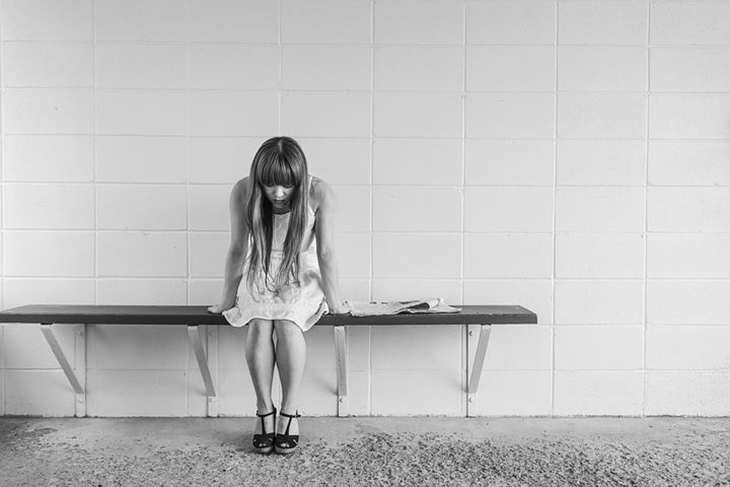
Have you ever heard someone say, “I’m so bipolar!” when they’re trying to explain their mood swings?
Depending on the situation we are facing, the news we read, or because of the different challenges that come our way, it’s very normal for our mood to change. But there are also times when our mood shifts greatly all throughout the day, from extreme highs to extreme lows, and there is a chance that it’s due to bipolar disorder.
There are a number of reasons why someone may experience mood shifts throughout the day, and in many cases, all of these feelings are not necessarily due to bipolar disorder. But according to the National Institute of Mental Health (NIH), there is also a 2.8 percent of American adults that are dealing with bipolar disorder from last year alone.
Formerly called manic depression, bipolar disorder is described by the NIH as ‘a mental disorder that causes unusual shifts in mood, energy, activity levels, concentration, and the ability to carry out day-to-day tasks.’ There are also very distinct signs and symptoms, which we have outlined in this article below.
What Are Mood Swings or Mood Changes?
According to a licensed independent clinical social worker, Robert McFerren, who is also the clinical director at the Pathlight Mood and Anxiety Center in Seattle explains that shifts in our mood and emotions are not only normal, but they’re common and healthy ways to react to the different events that occur in our lives.
But the question remains, what exactly is the difference between the two? As explained by licensed professional counselor and contributing faculty member in the School of Counseling at Walden University in Minneapolis, Hayden Center Jr. PhD., emotions can change quickly as a response to a certain situation. For example, you can wake up feeling happy, but then you find out someone’s dog just passed away. You may quicky shift from happy to concerned or even quite sad.
But on the other hand, some moods last much longer – sometimes for hours or even days – and they aren’t in response to a specific situation either. Dr. Center says, “Someone may be in a dysphoric mood for several days, meaning they feel very down and depressed.”
McFerren adds, “And mood swings can be more intense and don’t always have an obvious trigger.”
Moreover, when one experiences extreme stress, low blood sugar, sleep deprivation, or even when taking particular medications, it can also lead to mood swings, explains Center. McFerren also shares that they can be caused by traumatic experiences or even hormones. Meaning, the causes for someone’s mood swings or mood changes depend on the person or can vary, person to person.
When Is A Mood a Symptom of Bipolar Disorder?
When someone has a mood shift that is no longer than a few hours, or even a day, it’s considered normal. On the other hand, according to the American Psychiatric Association (APA), mood episodes that can last days, weeks, or even months are one of the defining features of bipolar disorder.
APA also shares that a person with bipolar disorder who is having a mood episode could feel manic, meaning they are either extremely irritable or extremely happy, or depressive – described as extremely sad. At times, these moods may also shift quickly at times, or otherwise not so fast. It is also important to note that people with bipolar disorder may also have periods of neutral moods in between their mood episodes. They can also have normal mood swings as well.
Moreover, the frequency and nature of mood episodes can also vary by the bipolar disorder type, of which there are three. Here are the explanations, according to the NIH.
- Bipolar I Disorder—defined by manic episodes that last at least 7 days, or by manic symptoms that are so severe that the person needs immediate hospital care. Usually, depressive episodes occur as well, typically lasting at least 2 weeks. Episodes of depression with mixed features (having depressive symptoms and manic symptoms at the same time) are also possible.
- Bipolar II Disorder—defined by a pattern of depressive episodes and hypomanic episodes, but not the full-blown manic episodes that are typical of Bipolar I Disorder.
- Cyclothymic Disorder (also called Cyclothymia)—defined by periods of hypomanic symptoms as well as periods of depressive symptoms lasting for at least 2 years (1 year in children and adolescents). However, the symptoms do not meet the diagnostic requirements for a hypomanic episode and a depressive episode.
There are also cases when someone’s bipolar disorder symptoms don’t necessarily fit completely into one of the types explained above. When this happens, it can lead to a diagnosis that’s called ‘other specified and unspecified bipolar and related disorders.’
The Difference Between a Manic Mood and a Depressive One
For someone to be formally diagnosed with bipolar disorder, a manic episode should last at least one week. A less severe hypomanic episode should last at least four days in a row. As explained by the Mayo Clinic, manic or hypomanic episodes should also have at least three of these symptoms:
- Decreased need for sleep
- Racing thoughts
- Increased activity, agitation, or energy
- Abnormally upbeat, jumpy, or wired
- Exaggerated sense of well-being and self-confidence (euphoria)
- Unusual talkativeness
- Poor decision-making (for example, taking sexual risks, going on shopping sprees, or making unwise financial investments)
Meanwhile the APA explains that a depressive episode must be at least two weeks and involve at least five of the following symptoms, including at least one of the first two symptoms listed below:
- Intense sadness or despair
- Loss of interest in activities one usually enjoys
- Fatigue
- Increased or decreased appetite
- Slowed speech or movement
- Difficulty concentrating
- Increased or decreased sleep
- Feelings of worthlessness or guilt
- Restlessness (for example, pacing)
- Frequent thoughts of death or suicide
When Should I Seek Treatment?
It’s important to know that you don’t need to have a particular mental health condition in order to seek medical help. If you happen to be struggling with troublesome symptoms, or possibly just want to get help to better manage your moods and emotions, seeking professional help or speaking with a professional to help you better understand your feelings and emotions is always best. You can also speak with them about potential treatments, if necessary.
With that said, if your mood changes significantly, affecting your ability to function as usual, or possibly creating problems with your work, relationships, social activities, and other important parts of your life, it’s always better to see a mental health professional who can properly diagnose you based on the symptoms you’re feeling or experiencing, including your health history.
Undiagnosed and untreated bipolar disorder can also have serious consequences. McFerren explains, for instance, people that experience a manic episode may possibly spend more than they planned on. Then afterwards, they can feel incredibly depressed, resulting in not being able to get out of bed and missing out on work because of it.
Dr. Center shares that some of the consequences of these mood episodes can also be life-threatening at time. “Not attending to moods that are out of the ordinary for long periods of time can lead to dangerous consequences such as suicide or drug misuse.”
According to the University of Michigan School of Public Health, there are also times when extreme mood swings are suggestive of certain health conditions rather than bipolar disorder, like poor blood sugar regulation. Other health issues that can cause intense, shifting moods are anxiety and attention deficit hyperactivity disorder. Dr. Center suggests that you should get checked by a primary care doctor who can possibly refer you to a specialist to get a proper mental health assessment.
What Treatments Are Effective For Bipolar Disorder?
McFerren explains that one of the best known and effective treatments for bipolar disorder is a combination of psychotherapy – otherwise known as talk therapy – and medications.
As explained by the National Alliance on Mental Illness, the following are the most effective psychotherapies for bipolar disorder:
- Cognitive Behavioral Therapy (CBT) This form of therapy helps people with bipolar disorder identify triggers that may cause a mood episode and enables them to develop healthy thinking and behavioral patterns to better manage their mood.
- Interpersonal Social Rhythm Therapy (IPRST) This therapeutic technique involves developing regular daily routines, such as going to bed and waking up at the same time each day, eating meals at regular times, and decreasing stressful triggers in one’s surroundings.
- Family-Focused Therapy This includes both the person with bipolar disorder and the people closest to them, such as spouses and parents, so that everyone is well-informed about the condition and develops skills for avoiding conflicts.
There are also various medications that people can take to help lessen the severity of symptoms for people with bipolar disorder. These include mood stabilizers, antipsychotics, and anti-anxiety medications.
For patients that are given prescribed medication to treat their bipolar disorder, it’s important to not stop taking it without first consulting your doctor. When patients take medications directed by their doctor, they are meant to lessen the likelihood of future mood episodes.
McFerren shares, “The most important thing in managing bipolar disorder is to maintain a consistent medication regime. Often, people who are diagnosed with bipolar disorder hit a point where they are regulated on medication and either miss the euphoria that can come with a manic episode, or they feel great after being on the medication for a period of time and feel they don’t need them anymore.”
He also warns, “Unfortunately, every time someone goes off of medication and experiences extreme manic and depressive episodes, it becomes more difficult for them to restabilize on medication.”
Aside from getting professional treatment, patients that take on new habits also find that it helps with their bipolar disorder to better control and handle their moods.
What the Substance Abuse and Mental Health Services Administration suggests are:
- Eat well and get regular exercise
- Always take your medicine as prescribed
- Stick to a consistent routine
- Keep a mood journal
- Minimize stress
- Turn to a support network
- Keep your primary care physician updated
- Avoid using alcohol and illegal drugs
If you or someone you know is concerned that they may have bipolar disorder, be sure to speak to a medical professional to get the proper diagnosis and treatment needed to best treat the diagnosis. Thankfully there are a number of treatments and medications to help anyone with bipolar disorder live a normal, happy and healthy life.



